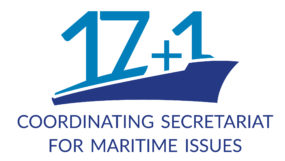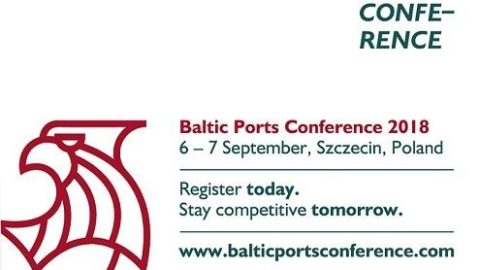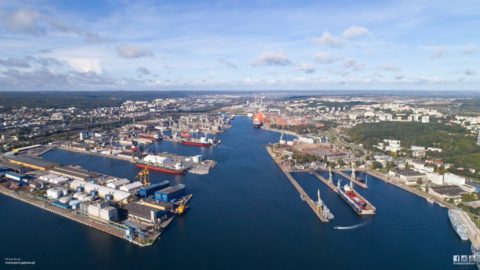Sinotrans is currently one of the top five largest companies in the world, and it ranks first in inland waterway transport. There is also the Yangtze group operating as part of Sinotrans, which group is a branch of the company. Mr Song Dexing worked for the Chinese department of transport for 5 years; he was the director of the office for waterway transport. He dealt with transport in China for 10 years, and in particular with issues related to solving transport problems at the level of national policy. Inland navigation in China is an extremely important mode of transport. The Chinese Yangtze River, being the longest river in Asia and the third longest river in the world, has enormous potential, much greater than the potential of the Mississippi River.
In fact, inland navigation is an environmentally friendly mode of transport. The use of river transport can contribute to reducing environmental pollution and to a better protection the environment . Therefore, it is important that all governments closely cooperate with businesses in issues related to the development of inland waterway transport. This will improve the situation of inland waterway transport, and in particular inland navigation.
Sinotrans sees a great potential in inland waterway transport through Europe, and is therefore interested in establishing cooperation. The company’s plans for the near future concern a multi-million investment in the development of infrastructure on the Yangtze River and the development of the ‘One Belt, One Road’ programme. Sinotrans is looking for potential partners and development opportunities, and it seeks the development of cooperation and better communication with companies in this part of Central and Eastern Europe.
Sinotrans interest in inland waterway transport development of Central Eastern Europe.
In the Central Eastern Europe and in China, an intense development of inland waterway transport is being carried out, which translates into an increase of the intermodality of transport. More and more containers are being transported by river transport. The increase in river transport reaches about 10% and is one of the fastest-growing areas of the transport industry. The growth trend of container capacity is observed not only on larger rivers, but also on smaller, less important ones. Mr Song Dexing believes that inland navigation in the countries of Central and Eastern Europe and China has a great future ahead.
In order to raise funds, a road construction foundation has been established in China. The funds collected are used for the extension and modernisation of inland waterway transport. The Chinese economy was not at its highest level 20 years ago. Currently, the economic situation is much better, which makes it possible to invest in the development of river infrastructure. To support its development, all river transport charges have been abolished. The Chinese government treats inland waterway infrastructure as a public facility; therefore, in order to expand this infrastructure, it uses government funds. One of the recent government projects will promote the use of electricity in river transport to make inland navigation environment-friendly. At present, goods are successfully diverted from road transport to river transport. Mr Song Dexing believes that Central and Eastern Europe has great potential for maritime, river and road transport to create a large transport market. Lowering costs is a key issue in achieving success.
General Manager of Sinotrans & CSC Holdings, Song Dexing





 Albania
Albania Bosnia and
Bosnia and Bulgaria
Bulgaria China
China Croatia
Croatia Czechia
Czechia Estonia
Estonia Hungary
Hungary Latvia
Latvia Lithuania
Lithuania
 Montenegro
Montenegro Poland
Poland Romania
Romania Serbia
Serbia Slovakia
Slovakia Slovenia
Slovenia